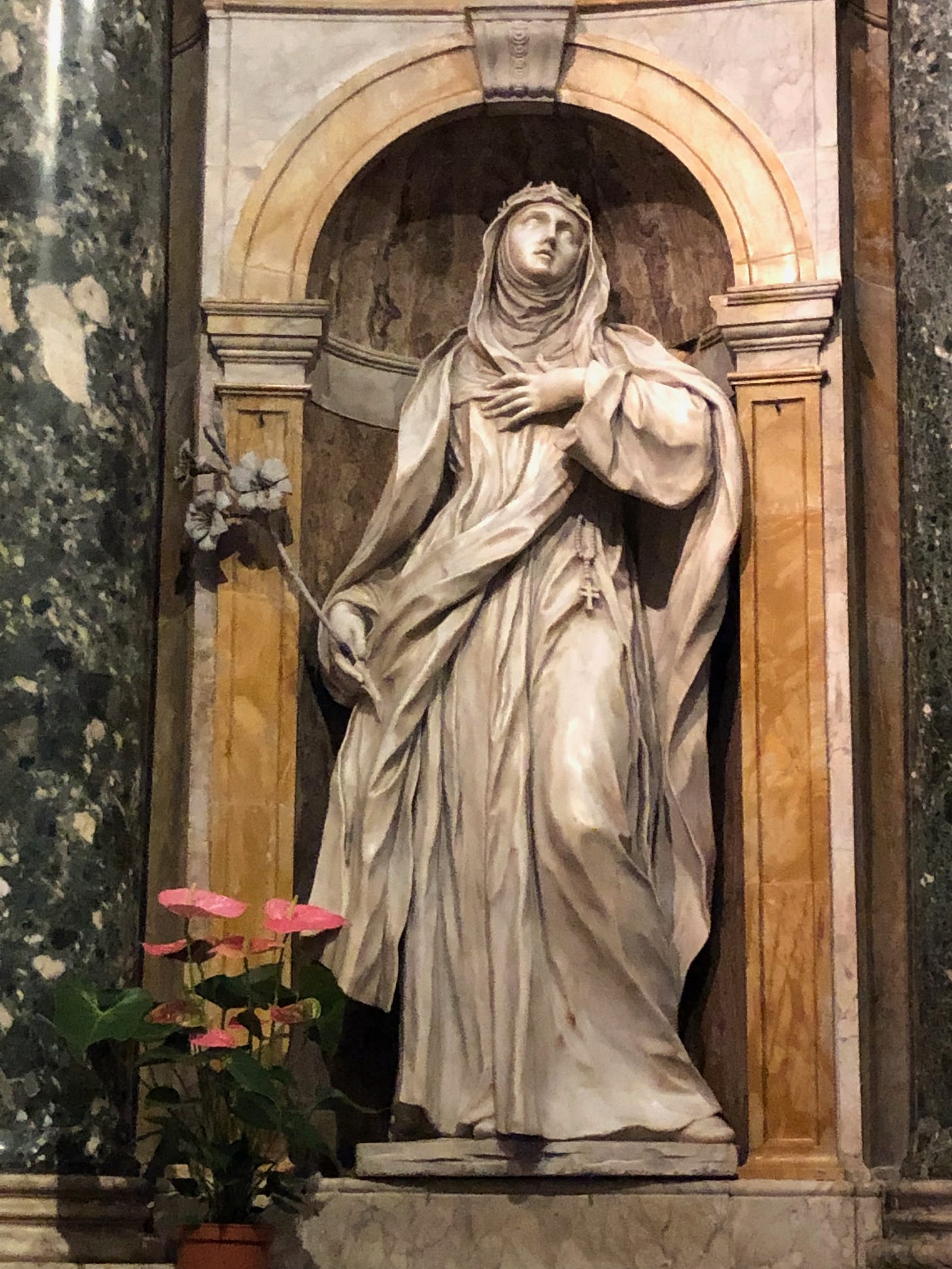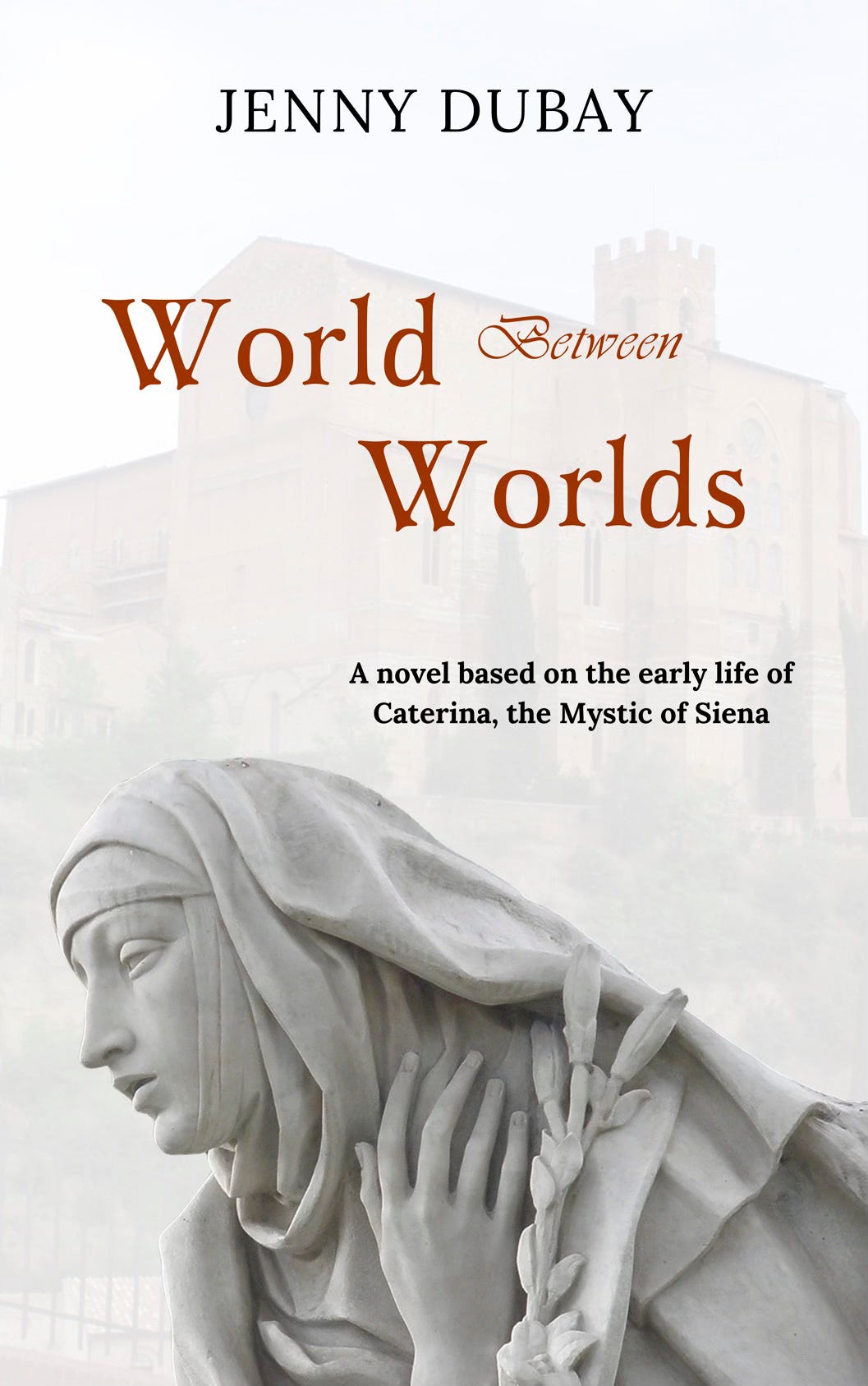St. Catherine of Siena’s Song
“My beloved is to me a sachet of myrrh that lies between my breasts.” (Song of Songs 1:13)
In a letter written during the Easter season of 1376, St. Caterina (Catherine) of Siena chided a parish priest in the town of Asciano because his behaviors were sinful and not worthy of his priestly station. Yet, in her typical and transformative way, she didn’t refuse to take the plank out of her own eye before removing the speck from his. She wrote:
“So be small and in deep and genuine humility. Look at God, who lowered Himself to your humanity. Don’t make yourself unworthy of what God has made you worthy of—I mean the precious Blood of His Son, by which you were ransomed with such blazing love … When we are in deadly sin we blindly sell ourselves to the devil. I beg you, for love of Christ Crucified: let’s get out of such slavery! I’ll say no more, but let me tell you this much: my own sins are numberless. So I promise you that I will take both mine and yours and make of them a bundle of myrrh which I will keep in my breast with constant bitter weeping.”
In the Song of Songs, the sachet of myrrh lying between the bride’s breasts—in other words, her heart and affections—represents Christ Himself. St. Gregory of Nyssa states that “the Lord Himself … has become myrrh in the sachet of my conscience and dwells in my very heart.”
I’m struck by Caterina’s image of her sins as the bundle of myrrh, rather than Christ as the bundle. Contemplating her imagery, I realize the blessed significance and full weight of her words.
In 1370 Caterina experienced a mystical vision in which Christ removed her heart and replaced it with His own Sacred Heart. From then onward Caterina lived with the assurance that Christ’s heart dwelled within her, that she trailed His healing fragrance throughout the world for the benefit of other souls who sought to know and love Him.
To make her sins a bundle of myrrh to keep within her heart “with constant bitter weeping” is an offering to the Sacred Heart of Christ. Caterina is taking her sins and placing them on the most Holy Cross so the Blood of Christ can make her—and the priest in need of chiding—new again (Isa. 43:19, Rev. 21:5). Caterina is recognizing how, with repentance, God takes away all our sins and replaces them with the softness of His precious Heart, making us white as snow.
Myrrh holds a somewhat bitter fragrance, though not unpleasant. In order for the perfume to be released the myrrh must be crushed, just as Christ was crushed for our sins—those same sins that crush and injure our souls. In a letter written in 1379 to the count of Fondi Caterina writes that myrrh is “the bitterness of the Cross, that is, of the sufferings borne by God's son.”
When Christ dwells in our hearts, and when we humbly place our sins there for transformation and redemption, His Divine Mercy transforms our bitter vices into a fragrance that is delightful to Him. With Christ truly living within our hearts, we allow our beloved Bridegroom to redeem and renew all things, especially the most soiled and darkened parts.
Special Offer!
If you’re intrigued by the life of St. Catherine of Siena and want to learn more, my adaptation of her early life (part one of a two book series) is currently on sale when you purchase directly from my website.
Learn more about World Between Worlds: A Novel Based on the Early Life of Caterina, the Mystic of Siena.
You can also purchase on Amazon using my affiliate link.





